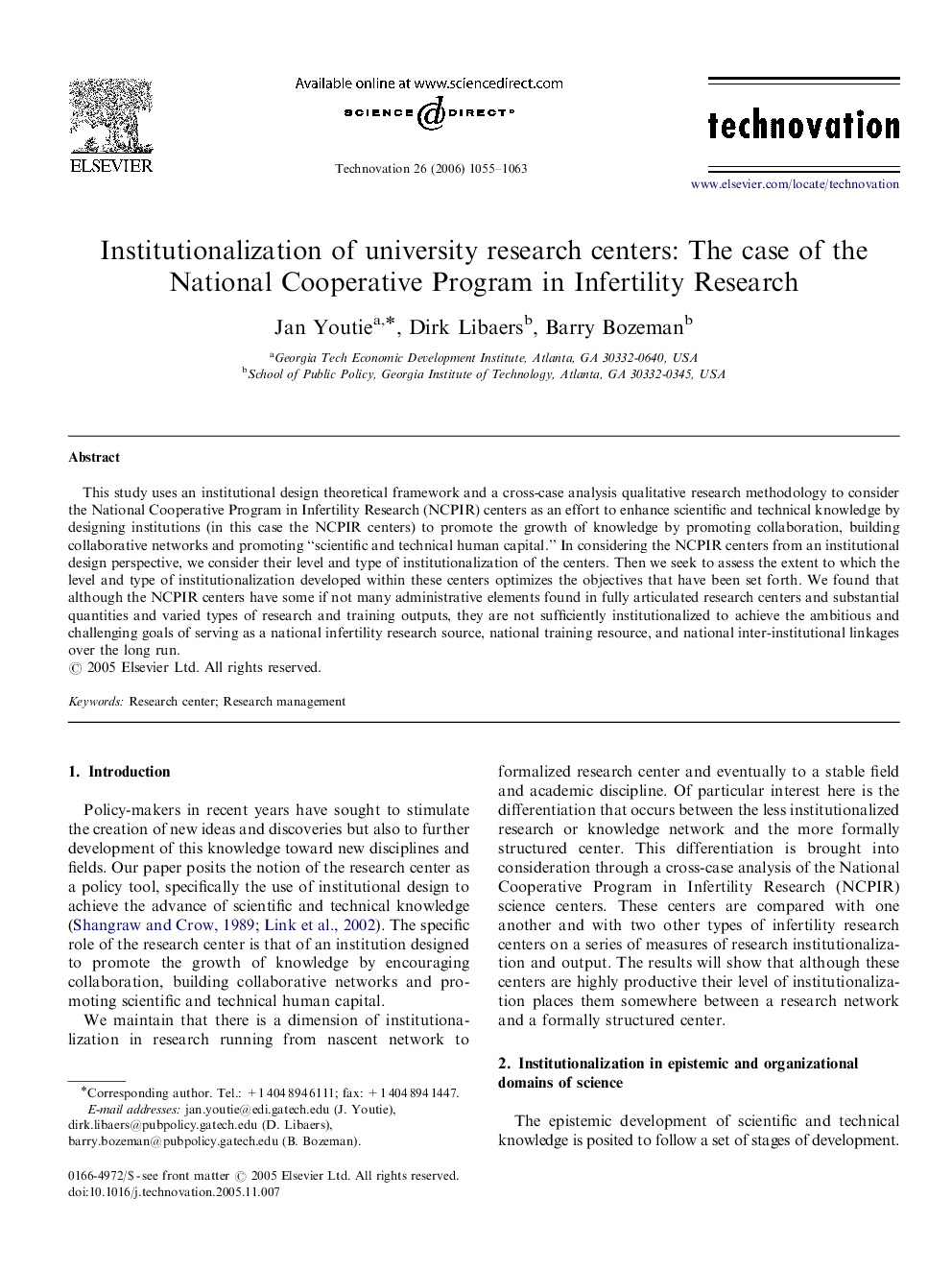| Article ID | Journal | Published Year | Pages | File Type |
|---|---|---|---|---|
| 1022747 | Technovation | 2006 | 9 Pages |
This study uses an institutional design theoretical framework and a cross-case analysis qualitative research methodology to consider the National Cooperative Program in Infertility Research (NCPIR) centers as an effort to enhance scientific and technical knowledge by designing institutions (in this case the NCPIR centers) to promote the growth of knowledge by promoting collaboration, building collaborative networks and promoting “scientific and technical human capital.” In considering the NCPIR centers from an institutional design perspective, we consider their level and type of institutionalization of the centers. Then we seek to assess the extent to which the level and type of institutionalization developed within these centers optimizes the objectives that have been set forth. We found that although the NCPIR centers have some if not many administrative elements found in fully articulated research centers and substantial quantities and varied types of research and training outputs, they are not sufficiently institutionalized to achieve the ambitious and challenging goals of serving as a national infertility research source, national training resource, and national inter-institutional linkages over the long run.
